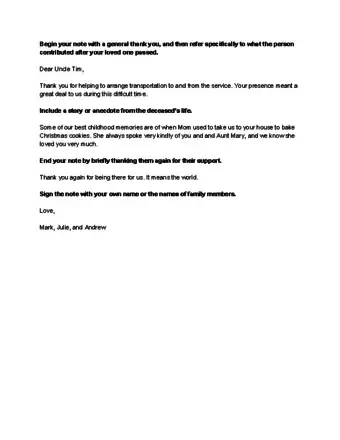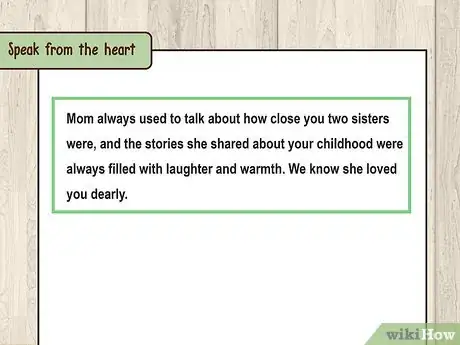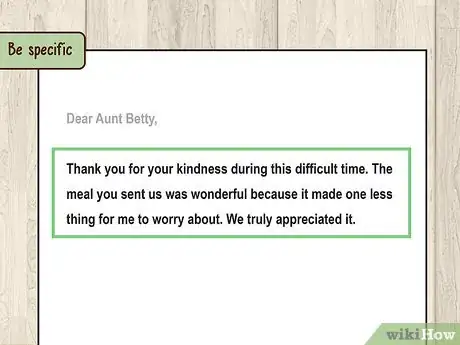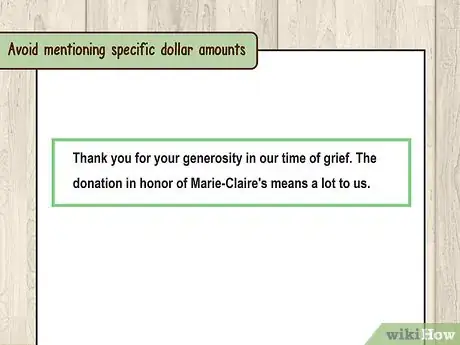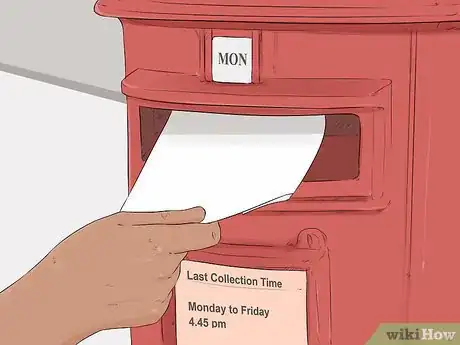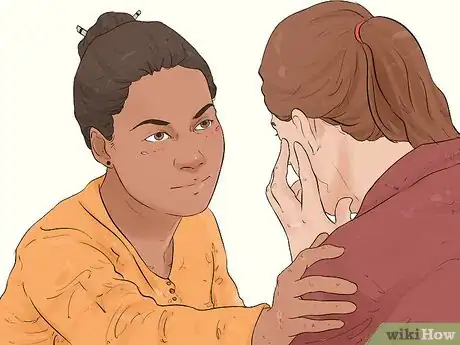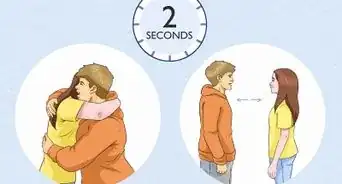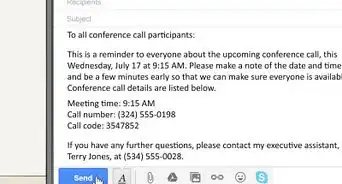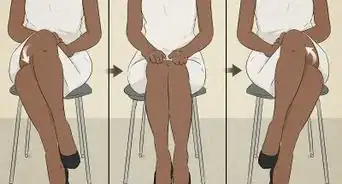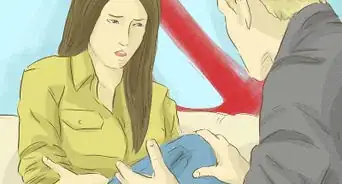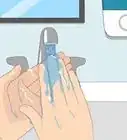This article was co-authored by Tami Claytor. Tami Claytor is an Etiquette Coach, Image Consultant, and the Owner of Always Appropriate Image and Etiquette Consulting in New York, New York. With over 20 years of experience, Tami specializes in teaching etiquette classes to individuals, students, companies, and community organizations. Tami has spent decades studying cultures through her extensive travels across five continents and has created cultural diversity workshops to promote social justice and cross-cultural awareness. She holds a BA in Economics with a concentration in International Relations from Clark University. Tami studied at the Ophelia DeVore School of Charm and the Fashion Institute of Technology, where she earned her Image Consultant Certification.
wikiHow marks an article as reader-approved once it receives enough positive feedback. This article received 12 testimonials and 94% of readers who voted found it helpful, earning it our reader-approved status.
This article has been viewed 2,257,869 times.
After the death of a loved one, attending to the niceties of etiquette might be the last thing you want to do. Nevertheless, it's an important part of life to acknowledge others' kindness in times of grief and hardship. Sending a short, simple thank you note is not only basic etiquette, but also a thoughtful way to convey your appreciation for those who were involved in the lives of your late loved one.
Steps
Sample Messages
Deciding What to Say
-
1Speak from the heart. Let the person know how much it meant to you that they were there for you during your time of need and that it meant a lot to you that they contributed in some way. There are many ways to approach the wording in your thank you notes, and all of them depend on what the person did for you and your loved ones. You might simply write two sentences thanking them for thinking of you at this time of great loss in your life and letting them know that it meant a lot to you.[1]
- If you are especially close to the person you’re thanking, feel free to include a personal anecdote or story from the deceased’s life, if you share one with whomever you’re thanking. Personalizing your thank you notes is always a nice touch, but certainly don’t feel that you must do this.
-
2Be specific.[2] In your thank you notes, reference specifically what the person or group you’re thanking contributed after your loved one passed. Whether it was a meal, flowers, or a memorial donation in their honor, specify what you’re thanking them for and let them know that their thoughtfulness meant a lot to you.[3]
- Begin your thank you note generally and build to more specifics. For example, good starting points would say something general, such as "Thank you for your kindness during this difficult time" or "Our family appreciates your support during this difficult time."[4]
- Then you can build to how they helped you specifically. After thanking them for their kindness if they delivered a meal, for example, you might say something like "The meal you sent us was wonderful because it made one less thing for me to worry about. We truly appreciated it." The key is to thank them for their specific contribution.[5]
Advertisement -
3Avoid mentioning specific dollar amounts. If you’re writing a thank you note to someone who gave a monetary donation in memory of your loved one, thank them for their donation, but don’t mention how much they gave. Simply say that you are thankful for their generosity in honoring your deceased loved one.[6]
- Good phrasing for a monetary donation might read like "Thank you for your generosity in our time of grief. The donation in honor of [deceased's name] means a lot to us." This way you convey your appreciation without mentioned how much they gave.[7]
-
4Don’t feel obligated to write long, detailed notes. Two or three sentences is sufficient to communicate your gratitude. The act of actually taking time to send individual thank you notes speaks volumes about how thankful you are. Don’t feel like you need to write long paragraphs to communicate your thankfulness.[8]
- Sign the notes either with your own name or “Family of [Deceased’s Name].”
Sending the Notes
-
1Try to send them within two weeks. General etiquette rules dictate that you need to send thank you notes within two weeks of the funeral. Your friends and loved ones know you’re grieving, so if you take longer to send the notes out, don’t worry. A late thank you note is better than no thank you note at all.[9]
-
2Solicit help if you need it. If the prospect of thanking dozens of people after the death of a loved one feels overwhelming, don’t hesitate to ask those around you for help. Even if it’s sending someone to the post office to buy you stamps or envelopes, delegate tasks to close friends or family members.[10]
-
3Remember that thank you notes are not a requirement. Finally, don’t feel bad if you don’t get around to thank you notes. While they are a key component of good etiquette, during times of grief, etiquette can take a backseat to our mourning. So if you can’t emotionally get through the thank you notes, don’t beat yourself up for not finishing them.
Expert Q&A
Did you know you can get expert answers for this article?
Unlock expert answers by supporting wikiHow
-
QuestionWhat do you write in a thank you card after a funeral?
 Tami ClaytorTami Claytor is an Etiquette Coach, Image Consultant, and the Owner of Always Appropriate Image and Etiquette Consulting in New York, New York. With over 20 years of experience, Tami specializes in teaching etiquette classes to individuals, students, companies, and community organizations. Tami has spent decades studying cultures through her extensive travels across five continents and has created cultural diversity workshops to promote social justice and cross-cultural awareness. She holds a BA in Economics with a concentration in International Relations from Clark University. Tami studied at the Ophelia DeVore School of Charm and the Fashion Institute of Technology, where she earned her Image Consultant Certification.
Tami ClaytorTami Claytor is an Etiquette Coach, Image Consultant, and the Owner of Always Appropriate Image and Etiquette Consulting in New York, New York. With over 20 years of experience, Tami specializes in teaching etiquette classes to individuals, students, companies, and community organizations. Tami has spent decades studying cultures through her extensive travels across five continents and has created cultural diversity workshops to promote social justice and cross-cultural awareness. She holds a BA in Economics with a concentration in International Relations from Clark University. Tami studied at the Ophelia DeVore School of Charm and the Fashion Institute of Technology, where she earned her Image Consultant Certification.
Etiquette Coach
-
QuestionShould I sign or write something additional on a pre-printed thank you card from the funeral home?
 Community AnswerOnly if you want to, perhaps to a special person or someone who did something special, such as read or sang at the funeral or helped with the wake or something. It is not really expected as people know you have suffered a loss, but a quick line for a special thing done or extra generous memorial donation would be fine.
Community AnswerOnly if you want to, perhaps to a special person or someone who did something special, such as read or sang at the funeral or helped with the wake or something. It is not really expected as people know you have suffered a loss, but a quick line for a special thing done or extra generous memorial donation would be fine. -
QuestionHow do I sign the letter?
 Community AnswerAs it says above, sign the notes either with your own name or “Family of [Deceased’s Name]."
Community AnswerAs it says above, sign the notes either with your own name or “Family of [Deceased’s Name]."
What You'll Need
- Notepad
- Pen
- Thank you cards or stationery
- Stamps
References
- ↑ Tami Claytor. Etiquette Coach. Expert Interview. 29 September 2020.
- ↑ Tami Claytor. Etiquette Coach. Expert Interview. 29 September 2020.
- ↑ Tami Claytor. Etiquette Coach. Expert Interview. 29 September 2020.
- ↑ https://mythankyousite.com/funeral-thank-you-note-wording/
- ↑ https://www.funeralbasics.org/simple-tips-writing-funeral-thank-you-notes/
- ↑ https://condolencemessages.com/funeral-thank-you-notes-what-to-say/#4-what-to-say-thank-you-note-for-funeral-donations-or-money-
- ↑ https://www.funeralbasics.org/simple-tips-writing-funeral-thank-you-notes/
- ↑ https://condolencemessages.com/funeral-thank-you-notes-what-to-say/#13-what-do-i-say-on-a-sympathy-thank-you-card-
- ↑ https://mythankyousite.com/funeral-thank-you-note-wording/
About This Article
To write a thank you note to someone after a funeral, write a few sentences thanking them for thinking of you during this hard time and letting them know it meant a lot to you. If you're close to the person, you could include an anecdote or story from the deceased's life to make the note more personal. It's also nice if you mention what the person contributed after your loss, whether it was flowers, food, or a donation. For more advice, like how to prepare and send your thank you notes, keep reading.
